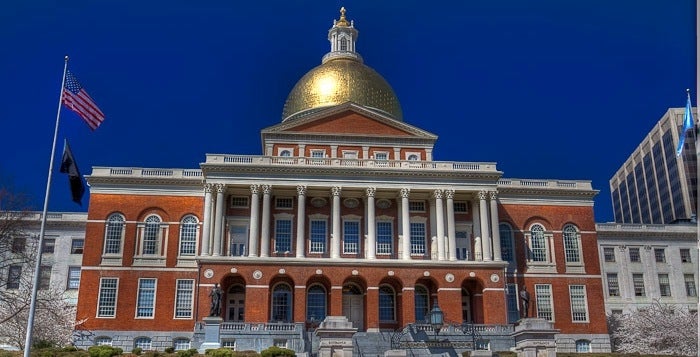Lawmakers dig into calendar that includes millionaire's tax
 Courtesy
The so-called millionaire's tax could be discussed on Beacon Hill.
Courtesy
The so-called millionaire's tax could be discussed on Beacon Hill.
As Senate President Stanley Rosenberg continues to beat the drum for more tax revenue to finance priorities like education, lawmakers gathering Wednesday to consider amendments to the state constitution may get the chance to vote on a proposal to tax income over $1 million at a higher rate.
The proposed amendment, which can not appear on the ballot until 2018 at the earliest, would apply a 4 percent surtax on all income in excess of $1 million on top of the state's standard income tax. To reach the ballot, at least 50 lawmakers from the House and Senate must vote in consecutive sessions to advance it to the ballot.
"We may or may not get that far in the calendar," Rosenberg told reporters on Monday afternoon, indicating that he would not seek consent from the members to take the tax amendment out of order.
The House and Senate will meet jointly on Wednesday to resume their Constitutional Convention. There are nine other proposed constitutional amendments on the docket before the millionaire's tax, which was just added by the Senate on Monday after the Revenue Committee voted 12-4 last week to recommend advancement.
The other questions ahead of the millionaire's tax include proposals to prohibit eminent domain, extend the mandatory retirement age for judges to 76, switch to an independent redistricting process, raise the bar of support required for spending from state reserves, and regulate corporate money in politics.
"How far we'll get will depend on the members on both sides in terms of how vehemently they want to debate any particular issue," House Speaker Robert DeLeo said, after meeting with both Rosenberg and Gov. Charlie Baker.
Unlike gatherings of the Constitutional Convention last year, both Rosenberg, who will wield the gavel at the joint session, and DeLeo said they expect some debate rather than just a quick recess to the next session.
"I'm hoping we'll get a fair amount of work done," Rosenberg said.
The Department of Revenue estimates the tax on incomes over $1 million would generate an additional $1.9 billion in annual tax revenue. Rosenberg noted that the shared opposition to new taxes by Baker and DeLeo would block a debate on the Senate floor over new revenues this year, but reiterated his belief that eventually the time will come that reforms and efficiencies within government will be exhausted.
"Over time, we're not going to be able to fulfill our needs without having a revenue discussion," Rosenberg said, later adding, "As hard as we're working to build balanced budget when you add up what people are looking for, and I'm not talking about being extravagant, I'm talking about the basic needs, there's simply not enough revenue."
Both Baker and DeLeo, who were standing to Rosenberg's left as he expounded on his belief that state government needs more resources to keep education costs down and the economy growing, did not comment on the Senate Democrat's position.
Rosenberg has not recommended a specific plan to raise revenues. In the past, the Amherst Democrat has sponsored a constitutional amendment calling for a graduated income tax structure under which higher tax rates would be imposed on taxpayers in higher income brackets and lower rates on those in lower income brackets.
Asked specifically about efforts in recent years to support half of the University of Massachusetts's budget with state dollars, Rosenberg said Baker's budget came up short, but did not say whether the Senate would put more money into the university when its turn with the budget comes around in May.
"I think if we continue this pattern we're going to be driving up student charges and we're going to be creating an enormous problem for our public higher education system," Rosenberg said. "It is there to serve people who have the ability, but not the means and we were starting on a path of trying to rebuild those budgets and we seem to have stalled again. We have to find the will and the revenue and the capacity to get back on track."
Baker's budget proposal for fiscal 2017 filed last week increased state support for higher education by about 1 percent.
"We're eventually going to have to deal with the reality that there isn't enough revenue to do what we need to do to keep this economy strong and growing," he said.
The question on Wednesday before lawmakers, who could see a tax vote raised later this year by political opponents during re-election campaigns, would be whether the question should be placed on the ballot for voters to decide.









0 Comments